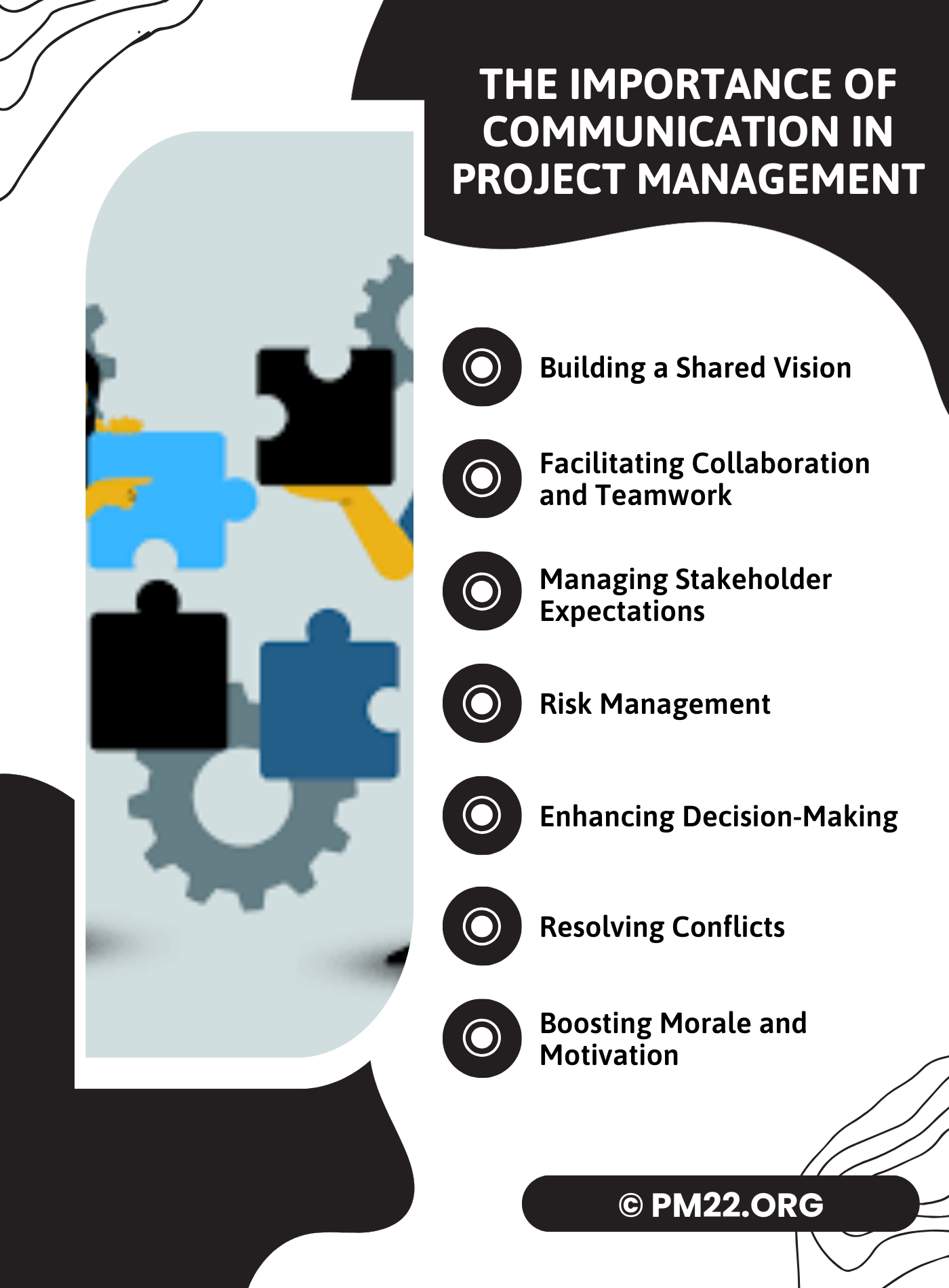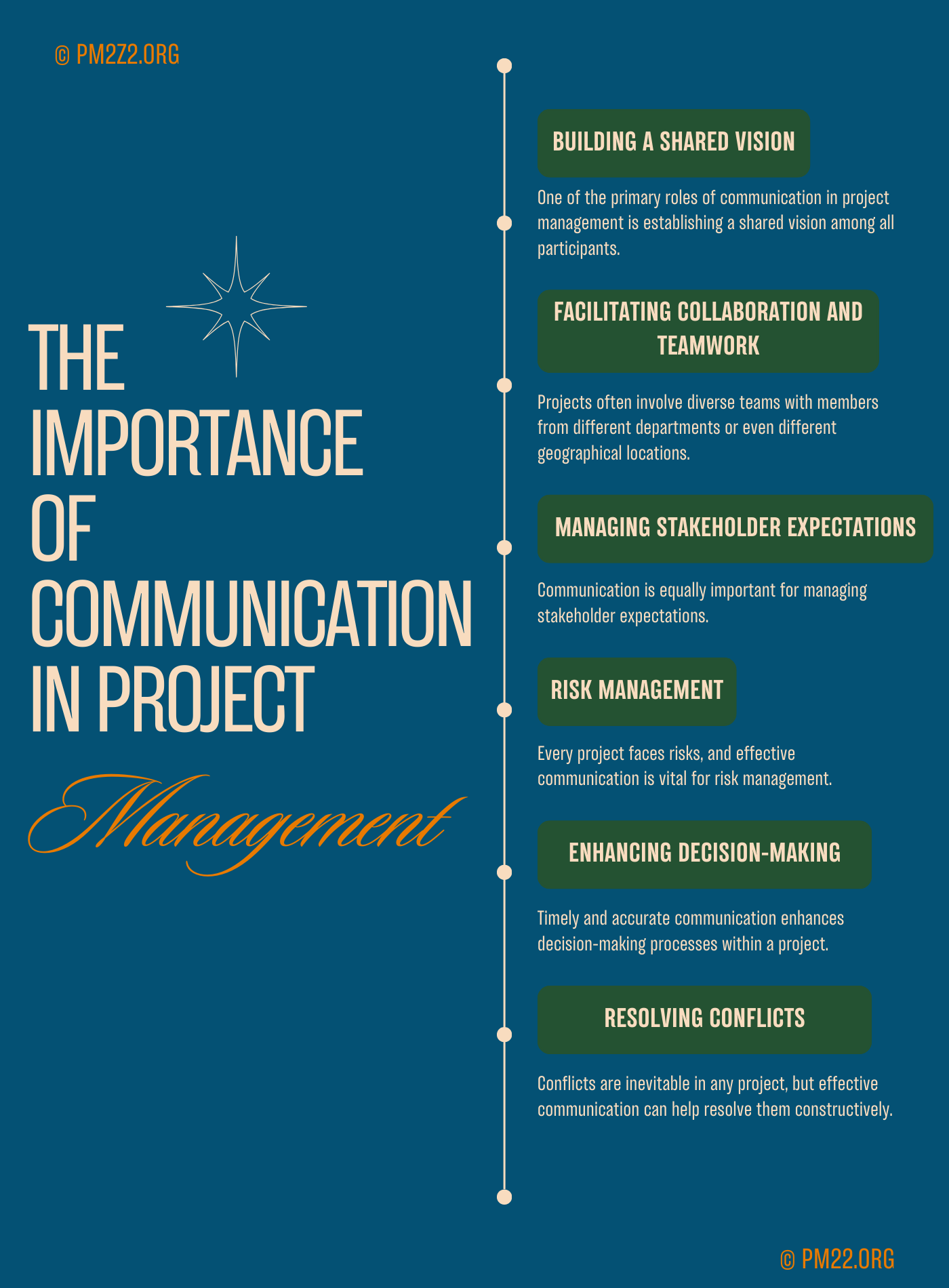 Effective communication is the cornerstone of successful project management. It serves as the glue that binds all project elements, ensuring that team members, stakeholders, and clients are aligned with the project’s objectives and progress. The importance of communication in project management cannot be overstated, as it directly influences the project’s success, efficiency, and overall quality.
Effective communication is the cornerstone of successful project management. It serves as the glue that binds all project elements, ensuring that team members, stakeholders, and clients are aligned with the project’s objectives and progress. The importance of communication in project management cannot be overstated, as it directly influences the project’s success, efficiency, and overall quality.
Building a Shared Vision
One of the primary roles of communication in project management is establishing a shared vision among all participants. Clear communication of the project’s goals, objectives, and expectations helps ensure everyone is on the same page. When team members understand the project’s purpose and their roles within it, they are more likely to stay motivated and committed to the project’s success. This alignment also reduces the risk of misunderstandings and misaligned efforts, which can derail a project.
CLICK HERE TO DOWNLOAD 300+ PROJECT MANAGEMENT TEMPLATES & DOCUMENTS IN EXCEL
Facilitating Collaboration and Teamwork
Projects often involve diverse teams with members from different departments or even different geographical locations. Effective communication is crucial for facilitating collaboration and teamwork. Regular meetings, updates, and open channels of communication help team members share ideas, address issues, and make decisions collectively. This collaborative approach fosters a sense of unity and cooperation, which is essential for overcoming challenges and achieving project milestones.
Managing Stakeholder Expectations
Communication is equally important for managing stakeholder expectations. Stakeholders, including clients, sponsors, and upper management, need to be kept informed about the project’s progress, risks, and any changes to the scope or timeline. Regular status reports and updates help maintain transparency and build trust. When stakeholders are well-informed, they are more likely to support the project and provide the necessary resources and approvals.
CLICK HERE TO DOWNLOAD 300+ PROJECT MANAGEMENT TEMPLATES & DOCUMENTS IN EXCEL
Risk Management
Every project faces risks, and effective communication is vital for risk management. By identifying potential risks early and communicating them promptly to the relevant parties, project managers can develop mitigation strategies and contingency plans. Open communication channels allow team members to report issues as soon as they arise, enabling the team to address problems before they escalate. This proactive approach to risk management can significantly reduce the impact of unforeseen challenges on the project.
Enhancing Decision-Making
Timely and accurate communication enhances decision-making processes within a project. When project managers provide clear and concise information, team members and stakeholders can make informed decisions quickly. This agility is crucial in dynamic project environments where delays can lead to increased costs and missed deadlines. Effective communication ensures that decisions are based on the most current and relevant information, improving the project’s overall responsiveness and adaptability.
Resolving Conflicts
Conflicts are inevitable in any project, but effective communication can help resolve them constructively. Open and honest communication encourages team members to voice their concerns and work through disagreements collaboratively. By addressing conflicts early and facilitating open dialogue, project managers can prevent small issues from becoming significant obstacles. This approach not only maintains a positive team dynamic but also promotes a culture of trust and mutual respect.
Boosting Morale and Motivation
Finally, effective communication can significantly boost team morale and motivation. Regular feedback, recognition of achievements, and transparent communication about the project’s progress make team members feel valued and appreciated. When people feel heard and acknowledged, they are more likely to remain engaged and motivated. This positive atmosphere contributes to higher productivity and a greater sense of satisfaction among team members.
Conclusion
In conclusion, communication is a critical component of successful project management. It ensures that everyone involved in the project understands the goals, collaborates effectively, manages risks, makes informed decisions, resolves conflicts, and stays motivated. By prioritizing clear and open communication, project managers can navigate the complexities of their projects and lead their teams to success.
